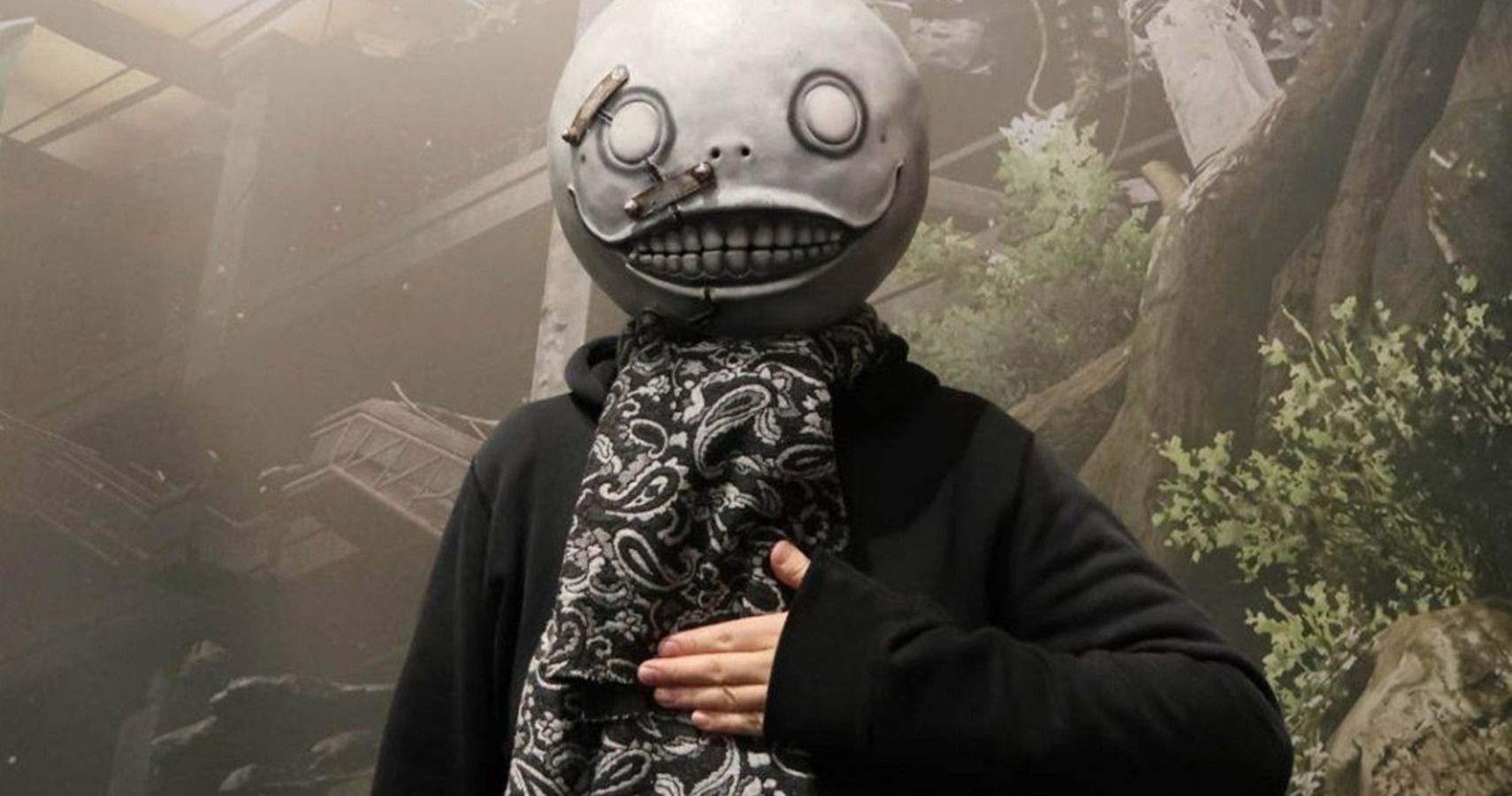Yoko Taro is an international treasure. The Japanese director is best known as “that guy who wears a massive moon helmet”, but he’s a genuine auteur - a rare one who hasn’t vanished inside of his own butthole.
In fact, he hates publicity - hence the moon head. He isn’t in video games for fame. Unfortunately for him, he’s got it. He should probably stop being so likable.
Remember when Nier Automata launched and Square Enix UK did a video shoot with him to promote a range of game merch? No? You didn’t see him rolling around on the floor saying “shit Square Enix”? Let me remedy that right now.
We don’t deserve him. Seriously. His stories might be about humanity’s darkness and why we’re driven to kill each other (as well as terrifying baby heads that eat people, let’s not worry about that), but he’s a light in that darkness. A beacon of hope. Video games just might be good, actually?
Everything is so serious in an industry that’s intrinsically a little ridiculous. Yoko Taro reminds us of that ridiculousness. He once told Famitsu that he doesn’t like interviews because game developers are boring and it’s not their place to entertain outside of their work. He’s doing a terrible job of not being entertaining, to be honest. It might be the one thing he’s actually bad at. That and being recognisable because, you know, giant moon mask. At least it's good COVID etiquette.
We recently asked him what his favourite game of this console generation is and he gave us a GameCube title and told us we aren’t very original. Legend shit.
Even the way he writes his stories is interesting. During a GDC talk, Taro discussed his unconventional scriptwriting methods. He writes stories backwards, starting at the conclusion and filling out the events that happened up to that point. From that conclusion, he works in reverse to identify the emotional peaks.
"This is the moment in which the game reaches your heart," he said. "In the story, these peaks represent these feelings we want to communicate to the player."
Identifying those peaks allows him to litter the game with things that will make those moments more powerful. If the peak is a character death, he scatters bits of backstory for players to discover leading up to that point, to flesh the characters out and increase the impact when the death happens.
Taro does this mostly for budget reasons - to cost-effectively streamline the writing process and its implementation into the game itself - but it works. It ensures that the player is the one discovering things and that’s what makes those emotional moments land so well. You found this out about a character, you weren’t just told it. That sense of discovery gives you some ownership.
His best game, Nier Automata, is a cult classic because of how it respects your time and rewards investment. You can finish it once and have a fulfilling experience, but every time you complete it, the story gets deeper and deeper, each playthrough throwing up a new story surprise as well as gameplay differences. It might be about androids battling robots, but it’s more human than most games with actual humans in them.
“To be honest, I think I am making normal games targeted towards normal people,” he once told The Guardian. “But ultimately when I release those normal games, weird people find them to be weird games and enjoy them. Which probably means there’s something wrong with me.”
There’s nothing wrong with you, Yoko Taro. You are a beacon of hope in a world of pain.

